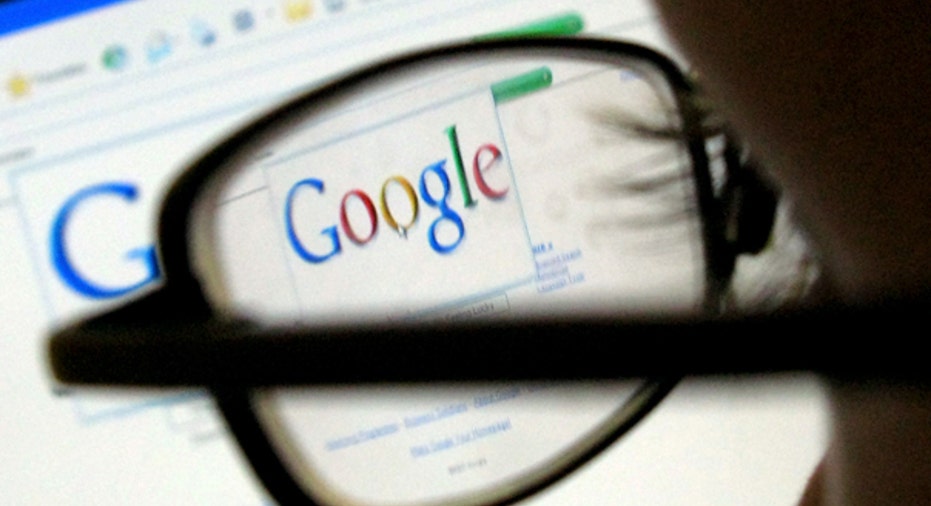Potential Downsides of Google's New Faster-Than-Instant Results

When Google revealed its "instant" search preview powers last year, CEO Eric Schmidt was unequivocal about Google's aim--to try to get its search systems so honed that they'd get faster and faster, and ultimately may even know what you're searching for before you know you need it. Today it revealed Google Instant Pages, and while it's not quite to the point of tapping your brainwaves to predict your needs, it is pretty smart. Essentially, it's a booster to Google Instant that starts pre-loading the pages from search results before you even click on the link for the site you want.
With Instant Pages, Google is getting its search results ducks in a row much more efficiently than it has in the past. With Google Instant, Google started suggesting search items in the traditional results list on its page the moment you started typing in words. Instant preview took this into a more visual direction with automatic, speedy previews of the search results in a list after you'd clicked, which let you peek into the page you might be about to surf to from inside Google (a cunning trick to keep you on Google's page for more time, hence keeping your eyeballs tuned to Google's own advertising system). Now Instant Pages adds another layer, by actually guessing which of its search results you're likely to click on and contacting the servers of that page to pre-load its contents in the background while you peruse the search results page.
Google's effectively second-guessing your search-result preferences for you in an effort to speed up your searches. It's using an algorithm which, because this is Google, leverages the huge amounts of data collected about your search habits as part of over 200 different parameters, not all necessarily connected to search history, to help it measure the likelihood of you choosing a particular link.
Incredible stuff, but Google Instant itself wasn't without controversy. And by speeding up and partly automating the search-and-visit process, which is still driven by a partly history-based algorithm, Google risks reigniting controversy with Pages. First, what does it do for a website's pageview count? Does the pre-load count as a pageview or unique visit? What happens if the customer actually chooses to click on a different link instead of the pre-guessed ones? Does all this extra computing and server work actually require more power than before, which could worsen Google's carbon footprint?
And there's always the closed-loop cycle to think about, whereby a system like Google's that's informed by your past habits to pre-form your future interactions with it can result in a type of tunnel vision. Google Instant is all about speeding up the web search process, and pre-guessing and suggesting matches for you. How this impacts on the search experience is not likely to be straightforward: Instant (now given an extra spin by Instant Pages) could result in you discovering new content that you may not have surfed to before, as it suggests matches to the incomplete phrases as you type in the full search string you're looking for. On the flip side, Google seems very confident that it can predict where you're going to click with Instant Pages--which could suggest we're all very habitual in similar ways. And with a super-speedy search experience that's so predictable, where's the space and time for the user to be encouraged to browse down the search match list and read content that's tangential or only slightly aligned to what they expected to find?
It's a potentially limiting behavior, and it could benefit from Google throwing in the odd red herring or completely random search result (a trick that JeJoue, makers of intelligent sex toys, considered when designing their own predictive device--though it learns a user's habits, and preferences, the toy also throws in unexpected behaviors to prevent falling into a habitual pattern).
Google's one mitigating factor against these worries is that Instant Pages only works in Chrome. For now. And there's bound to be some kind of politically driven investigation as to what this means for user privacy--if Google starts predicting what pages you'd like to surf to, exactly what kind of data must it have on your habits? That's the kind of question bureaucrats love to ponder.
Update: Google has got in touch to note a few things.
This does mean that Google's aware of the problems of tunnel-vision searching in today's content-rich web experience, and has taken algorithmic steps to adjust search results to deviate from a tunnel-limited view.
This content was originally published on FastCompany.com
 More news from Fast Company: - Children Adorably, Accurately Predict The Future Of Computing - Shazam's Second Act: Unleashing TV Content Online - Airbus's Jetliner Of The Future: Shape-Shifting Seats And A Virtual Golf Course
More news from Fast Company: - Children Adorably, Accurately Predict The Future Of Computing - Shazam's Second Act: Unleashing TV Content Online - Airbus's Jetliner Of The Future: Shape-Shifting Seats And A Virtual Golf Course



















